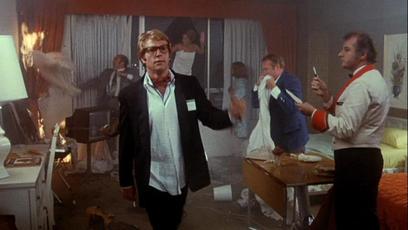 What's Up Doc? is an impressive throwback to the screwball comedies of the old days. For some reason I really can't explain, I always seems to forget that Ryan O'Neal exists; maybe it's just his generic good looks, I don't know. Anyway, him and Barbara Streisand each play their roles- the mild-mannered socially awkward professor & the zany, direction-less but surprisingly sharp woman, very well, respectively. This is definitely a film that embellishes in it's silliness. It's not the type of film where you should question the logic, but rather just go along for the ride. I think that Peter Bogdanovich's mentality in approaching this film is what inevitably makes it so much fun. What's Up Doc? is just loaded with comedic gags of all types of varieties which only seem to get more ludicrious and unexpected as the film progresses. I really loved the production design of this film- lots of colorful walls, carpets, etc, albeilt I may have just noticed this more being that I watched it on blu-ray. Bogdanovich's compositions and direction really compliment the comedic timing of the gags and it's all done very well. Favorite moments have to be the elaborate car chase and the scene towards the end in the courtroom; also, gotta love the Looney Tunes tip of the hat at the end. Peter Bogdanovich's What's Up Doc is not ashamed to go all in on the zany, and in doing so, creates a wonderfully fun film. 8.5/10
0 Comments
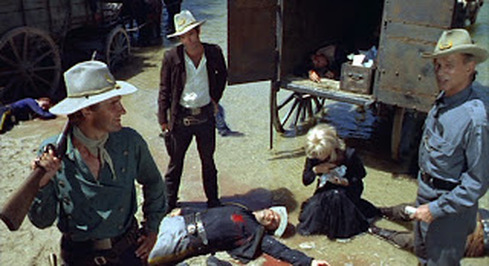 The Civil War has ended, but not for Jonas, a ruthless Confederate soldier, whose dead set on continuing the fight against the Union. With the help of his sons, Jonas plans on helping to reorganize the confederate forces in the Southwest. As Jonas and his boys travel through hostile territory, they carry a large sum of stolen money hidden in a coffin, said to contain the body of his dead son. Intent on revitalizing the confederacy, the men run into many obstacles on their way. Sergio Corbucci's The Hellbenders is a tense, exciting spaghetti western which dazzles as both a superb visceral experience and a tragic tale of disillusionment. Sergio Corbucci's visual style is omnipresent from start to finish, using a hodgepodge of zooms and exquisite framing to create this unique experience. Hellbenders is blistering with tension from start to finish, with almost every scene finding these men near seconds from being discovered for their true intentions. On their travels they face threats from Union soldiers, a group of Mexican bandits and Indians, yet their ongoing strife among themselves is what leads to their ultimate undoing. These men are truly ruthless individuals who kill anyone or anything which stands in their way and Corbucci doesn't shy away from the violence, frequently fixating on the bloody aftermath of these men's actions. Joseph Cotten is great as Jonas, a disillusioned man who won't accept that the Confederacy is finished. His disillusionment and greed rub off on his children, which inevitably leads to his downfall in a perfectly executed finale. Sergio Corbucci is frequently praised for his aesthetic choices but with Hellbenders he creates a strong portrait of a man whose blinded by his ignorance. 9/10 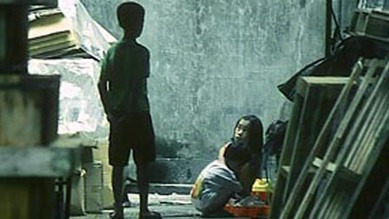 Little Cheung is a street-wise nine-year-old boy living in neighborhood of Hong Kong. His parents are very busy maintaining their restaurant and when Little Cheung isn't helping them deliver orders, he spends most of his time with his grandmother and her Filipino maid Armi. That is until Little Cheung meets Fan, a young girl whose an illegal immigrant. Fruit Chan's Little Chueng is the final film in his informal trilogy (Made in Hong Kong & The Longest Summer) about life in Hong Kong post China's re-occupation. Early on, the film makes it quite apparent that Little Cheung is a mischevious, though overall well-intentioned, young boy whose always looking for a new way to make a buck. This all changes with the arrival of Fan. Fruit Chan spends a lot of time showing the relationship which forms between these two, with Fan ultimately being the device which initiates change in Little Cheung. With Fan, Little Cheung shows empathy for the first time, as learns of her struggles as an illegal immigrant. Parallel to their relationship exists Little Cheung's lack of relationship with his father, a strict man who keeps Little Cheung on a very short leash. We come to learn that this is because of Cheung's older brother, a gangster, who subsequently was disowned by his father. Being that the film is told for Little Cheung's perspective, the film reveals these details about his family in a slow, but guided fashion. Much of what transpires early on goes right over Cheung's head, yet the viewer is able to gather a lot about his family's past and the implications which they have on young Cheung and his family. It's with Little Cheung's newfound understanding in which he decides to go look for his brother, much to dismay of his father. Little Cheung is probably my least favorite of Fruit Chan's psuedo trilogy mainly because I never felt very emotionally attached. It's hard to pinpoint precisely why but I guess I never felt the stakes were high enough for Little Cheung and I certainly wanted more centered around Cheung's father's plight. Some of the blame could also be attributed to the young actor's rather limited talent, but the story also seemed a little confused about what it wanted to be. 6/10  Denis Cote's Bestiaire is a hard film to put into words. It's curious, compelling, and perplexing but ultimately a film in which one person will get something different out of than the next. With Bestiaire, Cote pains a contemplative portrait of animals living in captivity at Quebec's Parc Safari, but while most filmmakers couldn't resist biasing the film with their point of view, Cote's film is an incredibly fascinating meditation on the relationship between man and beast. This is not a scathing commentary oabout animals in captivity nor a light-hearted nature doc, this is a film about coexistence. In fact, the films ability to remain neutral on such a combustive topic is impressive in it's own right but that isn't to say the confinement of these animals' isn't felt. Perhaps the opening sequence of the film in which we witness art students, using a stuffed deer as their latest subject to sketch, encapsulates how Cote's interest in man and beast goes far beyond the captivity debate. Bestiaire features absolutely no music or dialogue throughout its 70 minute running time, relying on gorgeously composed and framed imagery to speak for itself. The film is endlessly intoxicating because of imagery alone, but there are points in which the films seems to almost transport the viewer into the headspace of these animals, and at times, captures how similar they can be too mankind. I'm sure some will find this film boring but this film was intoxicating for me, with the lack of music and dialogue only heightening the observational experience. Denis Cote's Bestiaire is certainly not a film for the average filmgoer but if you are looking for something different, compex, or challenging, Bestiaire should not be missed. 8.5/10 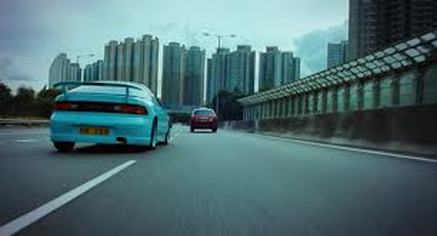 In the Stealth Riders division, a secret police unit consisting of the best drivers on the force, a split-second decision can be the difference between life and death. The officers who make up this division are tasked with taking down criminals in the drag racing underworld. When a legendary escape car driver reappears on the scene, the police themselves may be in over their heads. Pou-Soi Cheang's Motorway is a fun action film, specializing in car chases, that does enough to stand-out somewhat in this crowded sub genre. The narrative revolves around an overconfident rookie and his veteran partner, whose had past run-ins with this legendary criminal. Motorway focuses on this rookie character's eagerness for action, which inevitably leads him into trouble and eventually change. The character dynamics are quite obvious in this film with the veteran character representing the older and wiser man who must teach the rookie the shortfalls of his arrogance. It certainty isn't anything new but the change which transpires in the lead is heartfelt, going from gung-ho rookie to a man who has learned the consequences of his decisions and the fragile nature of life at 200 km/hr. That being said, most people aren't going to be interested in this film for the drama and character arc but the car chases. Fortunately, Motorway does just enough to keep these car chases exciting and somewhat unique, using some inventive cinematography which I haven't seen frequently in these types of action sequences. My favorite aspect of the action though is just how creative the film is in portraying how these skilled drives use their cars. The car is a tool to them and we see how they spin their tires to create diversions and use gas in their car specifically as a weapon, among other fun ideas. Of course this could easily come off cheesy but unlike the Fast and Furious films, which I do like, Motorway is more interested in presenting a grounded action film where most of the car stunts and action feels plausible and realistic. Motorway isn't deep by any means but it does enough character and story-wise to keep things interesting in between the high speed pursuits. 7/10 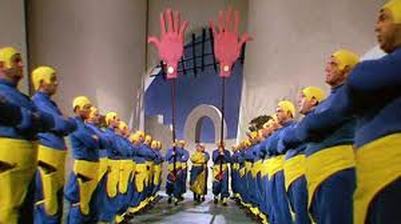 Bart is a young boy who, like most young boys, doesn't enjoy taking piano lessons with his tough teacher, Dr. Terwilliker. Bart would much rather play sports outside with his friends but his mother insists that he stay with piano. One night, while asleep, Bart has a long, crazy dream in which he is trapped in the horrifying kingdom of Dr. T, whose hellbent on enslaving hundreds of little boys in an effort to force them all to practice on the world's largest piano. Based off of a Dr. Seuss' story, Roy Rowland's The 5,000 Fingers of Dr. T is a charming and wildly inventive childrens movie that effectively brings Dr. Suess' unique vision to the big screen in a way which I'm pretty sure has never been duplicated. I couldn't help but sit in awe, admiring the gigantic, colorful set pieces which truly bring this film to life. 5,000 Fingers uses what appears to a variety of matte backgrounds and enormous sets to great effect especially given the propensity for CGI these days. The color pallete is vivid and varied, using almost every color in the rainbow to create this world which certainly feels right off the pages of a Dr. Seuss book. As for the story, it's certainly something which most children can relate too. I mean, who actually enjoyed piano lessons as a child? The whole story is a wild adventure driven by the imagination of Bart, who uses his wild-imagination to justify who why his piano teacher is so hard on him. By today's standards, The 5,000 Fingers of Dr. T may be a little scary to young children, but I certainly would not hesitate sharing this film with a little one. My biggest critique of the film is that the musical numbers overall were quite lackluster, ultimately feeling unnecessary and distracting to the story. I honestly have no idea if this was something in Seuss' book but I suspect it was something added into the story, especially given this point in cinema's penchant for musicals. What may be the greatest attribute of The 5,000 Fingers of Dr. T is the timelessness of the concept, capturing the wondrous imagination of children. 7.5/10 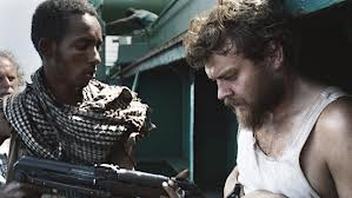 A Hijacking follows the crew of the MV Rozen, a cargo ship, headed across the Indian Ocean for Dubai. When the ship is captured by Somali pirates, the men on board are taken hostage and used as bargaining chips for the Somali pirates to get their demands. Amongst the men on board are the ship's cook Mikkel, and engineer Jan, two men who are primarily responsible for communicating the pirates demands to their employer. Tobias Lindholm's A Hijacking is a tension-filled story which focuses on the human consequences of modern piracy and how it effects not only the men held hostage but also their familes and the men responsible for trying to negotiate their freedom. The film spends nearly equal time with the crew and the negotiators, capturing every detail of this horrific situation. The opening sequence of the film sets up how our main protagonist, Mikkel, misses his wife and child. He talks to them on the phone and tells them he will be home soon. This is a simple scene that effectively establishes both the type of man Mikkel is, as well as what is at stake with these negotiatons. The film does a great job at capturing the psychological effect which this type of situation would have not only on the crew but also their employer who must try and get them home. David, the CEO of the company, has absolutely no experience dealing with this type of situation and we see the effect it has on his psyche. He is a man who feels responsible for captured crew, and one could make an argument that David is truly the main character of the story. While a film dealing with this type of subject matter could have easily come off as manipulative or exaggerated, A Hijacking does a fantatsic job at holding on to this chilling subdued energy that never feels too high or too low to believable. In the end, A Hijacking is a strong film because the respect it shows to all parties involved, from the negotiators to the family members of the hostages, painting a seering and realistic portrait of this game of life and death. 7.5/10 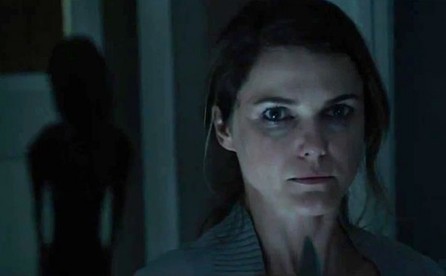 Daniel and Lacey are a seemingly happy couple, who lives in a nice suburban neighborhood with their two young boys. One night Lacy notices strange sounds coming from the kitchen but upon her investigation the family writes the disturbance off as animals rampaging for food. Of course when these types of disturbing events continue to escalate the families peaceful home begins to unravel. With no explanation for these events, the family turns to a conclusion which many would deem crazy - the family is being targeted by extraterrestrials. Scott Stewart's Dark Skies is a decent, albeit bland, horror film that really follows the same formula as films like Insidious and Sinister. The opening sequence of Dark Skies really aims to establish this neighborhood the family lives in as the perfect american suburbs. We see kids playing the streets, fathers playing catch with their sons, among other stereotypical americana in an effort to sell this american dream persona. Soon after though we learn that Daniel and Lacey's family is hurting financially and ultimately struggling too be a copacetic family unit. What begins as a promising allegory about the need for families to love each other and stick together ultimately unfolds because the filmmaker seems to never quite be able to decide if he wants the film to be this smart allegory or just another bland horror film. As the film builds, we are completely reminded of how the family is disjointed because of finances and other issues, which is exactly why the Aliens are targeting them. J.K. Simmons' character, who plays the stereotypical source of knowledge in this particular film, even goes as far as to tell Lacy and Daniel straight up, the stronger you are as a family the harder it is for the alien's to abduct your child. Unfortunately the film never fully commits to this approach, often relying too much on cheap thrills and rather poor character development. Dark Skies is a film that will probably satisfy the average horror film viewer with a few cool ideas but its rare glimpse of promise at being more than another generic film ultimately dissipates. 5.75/10 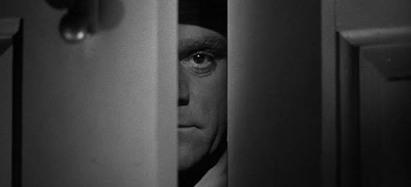 After inadvertently leaving clues behind at a railroad heist, career criminal Cody Jarrett becomes the target of the feds who are hot on his trail. In an attempt to escape serious charges, Jarret deliberately confesses to a small crime in order to provide himself an alibi for the railroad heist. In prison he befriends Vic Pardo, who is secretly an undercover agent sent in to infiltrate Jarret's gang. Pardo who is really agent Hang Fallon, takes on the persona of a man desperate to work with Jarret and after saving his life from an attempted prison hit, he becomes Jarret's right-hand man. When the men successfully bust out of prison, Fallon races against time to alert his fellow agents of Jarret's next heist. Raoul Walsh's White Heat is one of the few films which completely lives up to its reputation. This is the quintessential crime drama featuring lots of action, suspense, double-crosses and of course a truly iconic villain in Cody Jarrett. While there is no denying that James Cagney's portrayal is legendary, I would argue that Raoul Walsh and his screenwriters really never get the credit they deserve in creating one of the most interesting examinations of the criminal mind committed to celluloid. Cody Jarrett is such a fantastic psychopath who just oozes instability in every scene. He is a man who has little regard for his partners in crime, showing absolutely no loyalty to anyone if they stand in his way. The one exception to this being his mother, who Cody Jarrett loves unconditionally. Jarrett is mentally unstable, with his mother being the guiding force throughout his entire life and his main inspiration for wanting to "make it too the top". The other thing that continually stands out for me no matter how many times I watch White Heat is the pacing. This has got to be one of the best paced films in existence with every scene feeling 100% necessary and driving the narrative at nearly breakneck speed. One could even argue that the pacing is what makes the iconic ending so powerful and dynamic. It's the escalation of Jarrett's instability which finally explodes in the climax, making it one of the most iconic endings of all time. Raoul Walsh's White Heat is a fantastic crime drama that deserves every bit of praise thrown its way. 9/10 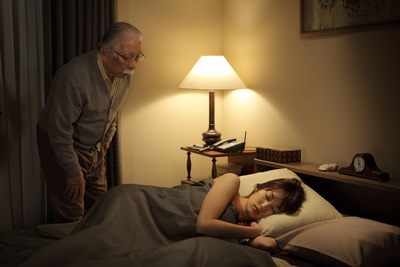 Akiko, a young, beautiful woman, is a student by day, but when it comes to nighttime, she moonlights as a call girl. When Akiko is sent to a new client in the suburbs, she is surprised to find the shy and elderly, Takashi, an academic widower. Takashi is a lonely man who appears to be more interested in compaionship than sex, leading to Akiko falling asleep, alone, in his bed. Abbas Kiarostami's Like Someone In Love is the classic example of a film which people are destined to say "is about nothing". While I can understand the frustration by some viewers, Like Someone in Love's incredibly simple story is all about the relationship which forms between Akiko and Taksahi. There is a sequence in the beginning of the film which simply yet effectively captures the person which Akiko has become. After getting into a fight with her handler, Akiko folds under the pressure of his demands and gets into a cab headed for her new client. Akiko was hoping to see her grandmother, who was visiting, and as she gets in the cab she listens to her grandmother's voicemails. Each message feels like a ticking time bomb, as the grandmother's desperation to see her granddaughter grows more and more. Kiarostrami shoots this entire sequence with one single static shot, transfixed on Akiko, a young woman who really has no control over her life whatsoever. It is a simplistic, yet devastating sequence which perfectly illustrates how little control Akiko has over her own decisions even when it comes to seeing her own grandmother. Takashi's character is far less defined but through subtle storytelling Kiastromi paints a portrait of a lonely old man whose beginning to feel the effects of father time. The other principle character in Like Someone In Love is Akiko's boyfriend, Noriaki. Noriaki is a man with a temper and really the link to understanding Kiastromi's intentions. Norikai is almost just like another pimp to Akiko, a strong-willed man who essentially pushes Akiko around. Through seeing how Noriaki treats Akiko the viewer begins to understand exactly why Akiko is such a passive character. Through the entire film Takashi is the only character who seems to value Akiko's desires and interests, and the two of them each give the other something they solely are lacking. For Takashi is is simply companionship but for Akiko she is able to see what it is like to be around someone who respects her. While I wasn't big on the abrupt ending, LIke Someone In Love is a simple yet effective character study thats engaging, even if it does keep its viewer at arms length. 7.5/10 |
AuthorLove of all things cinema brought me here. Archives
June 2023
|
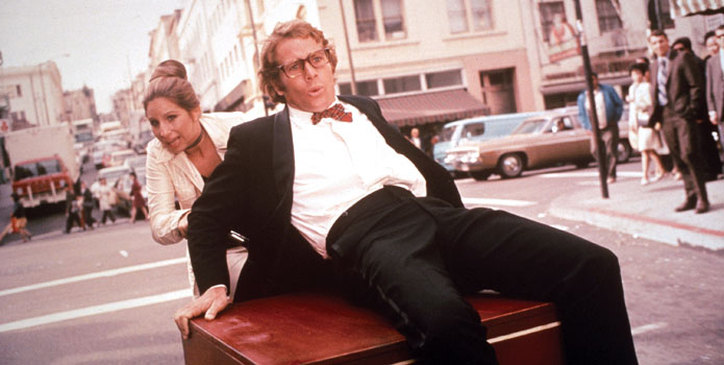
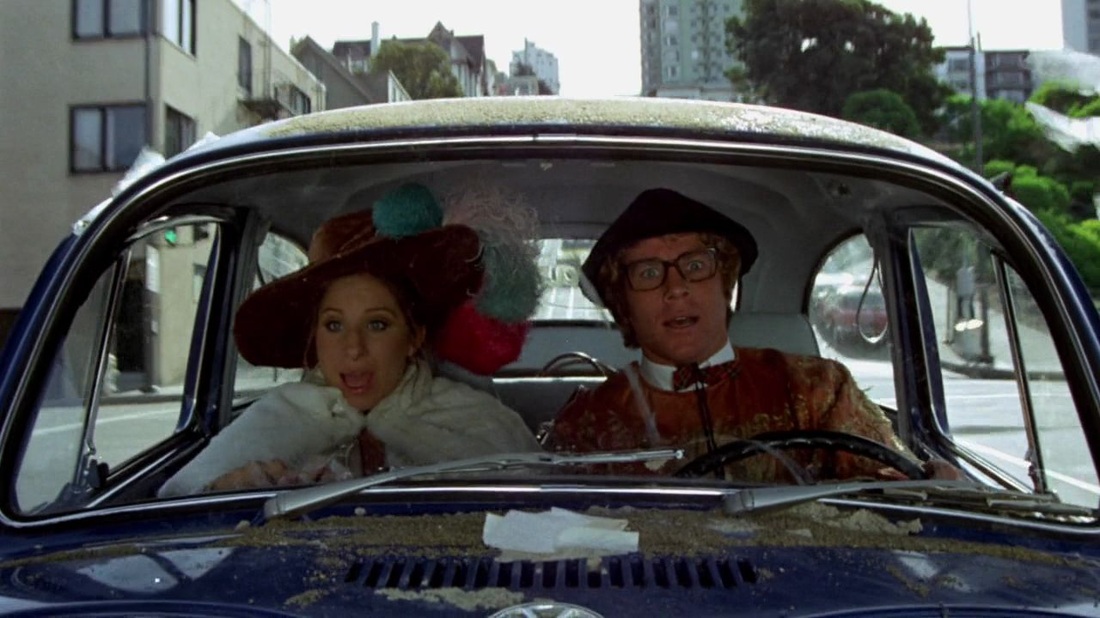

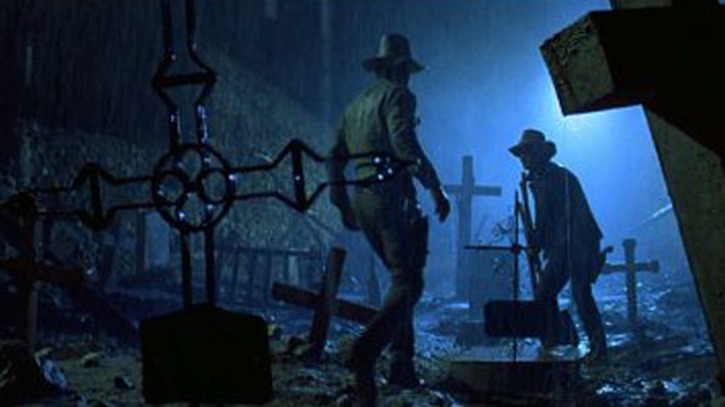
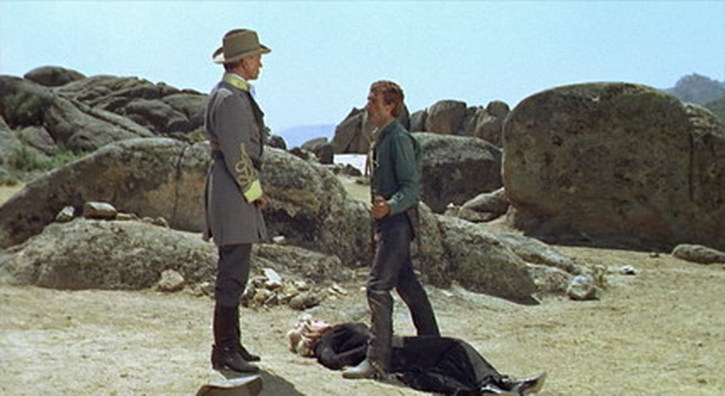
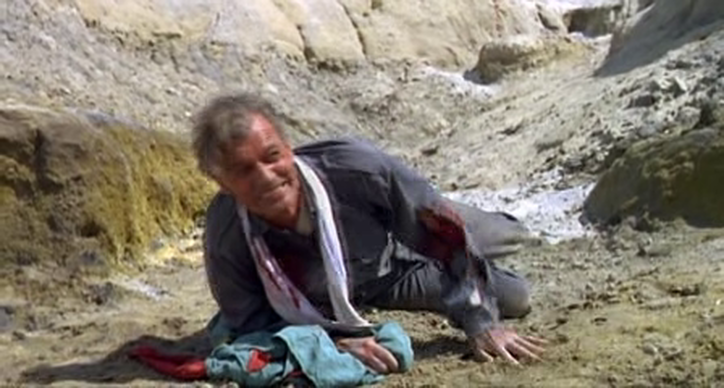
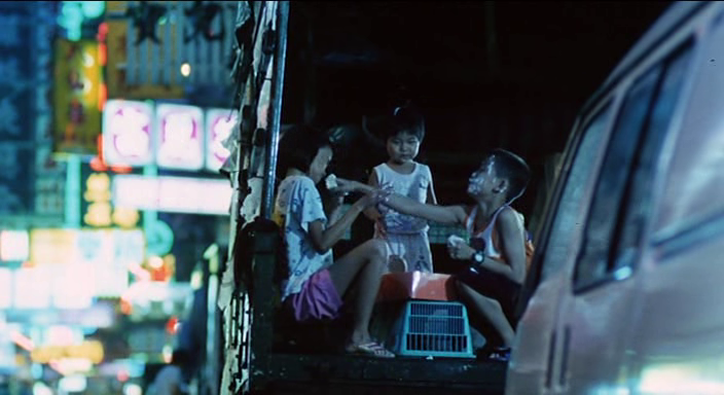
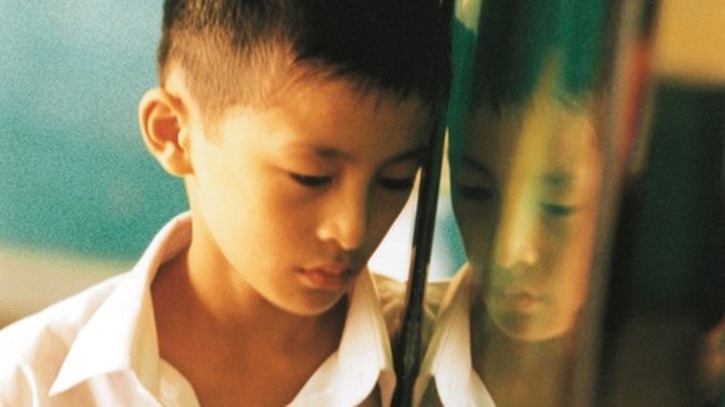
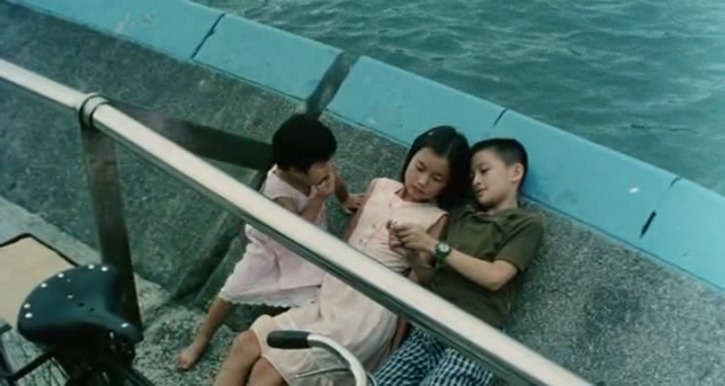
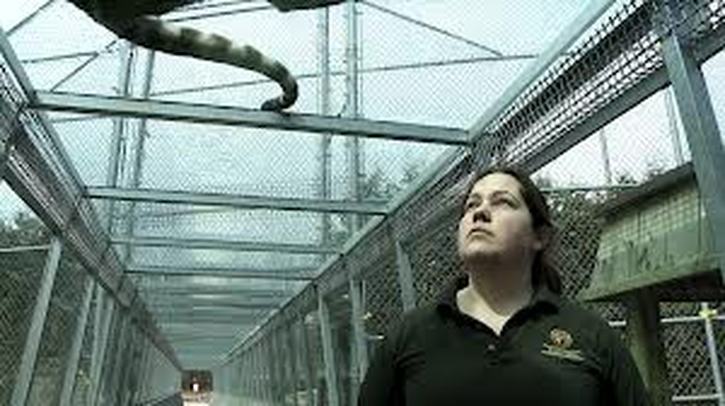
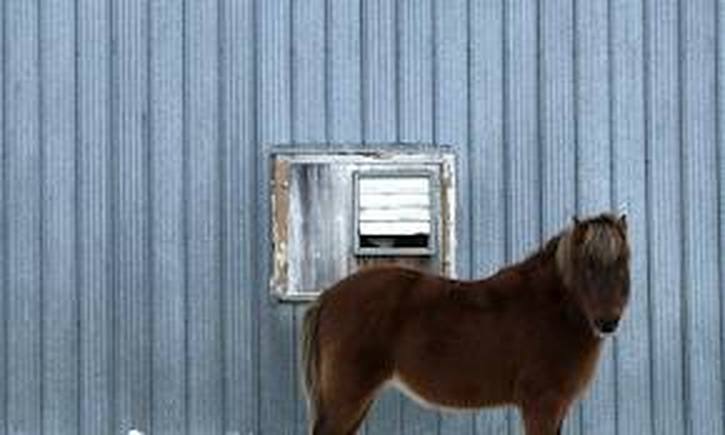

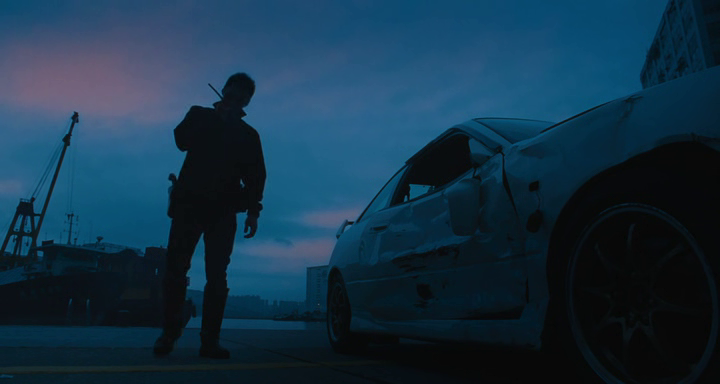
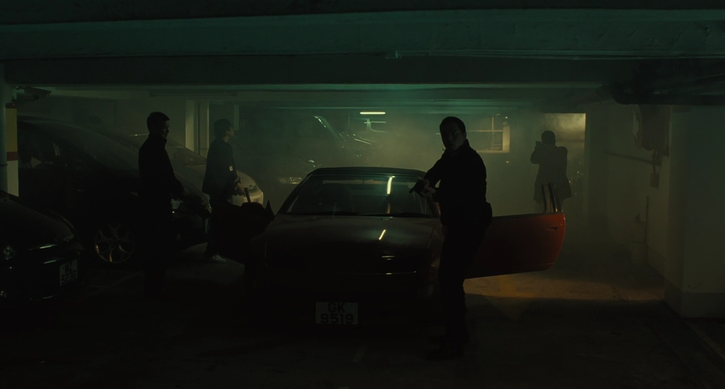
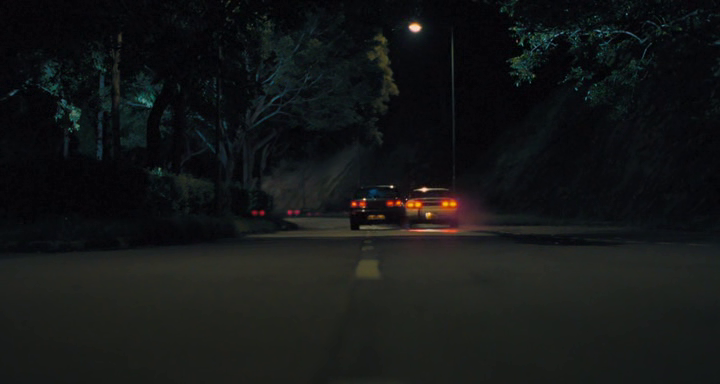
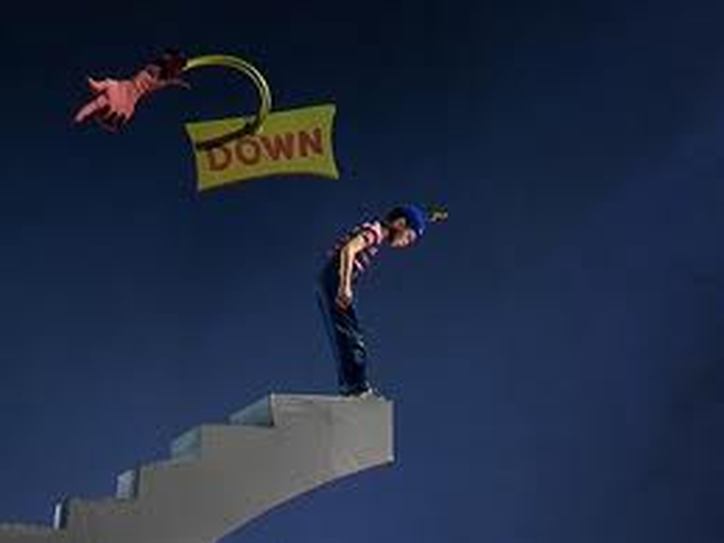
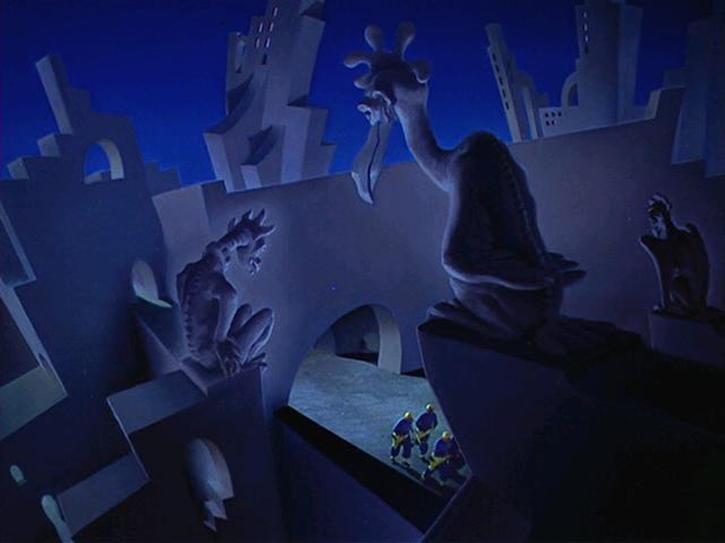
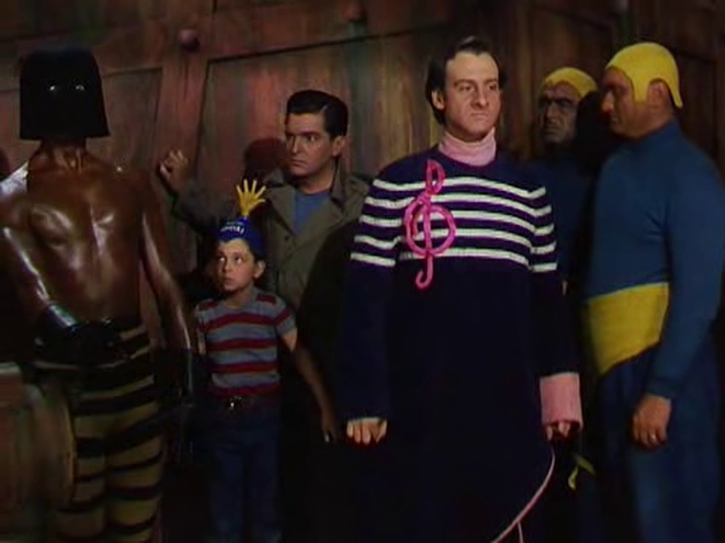
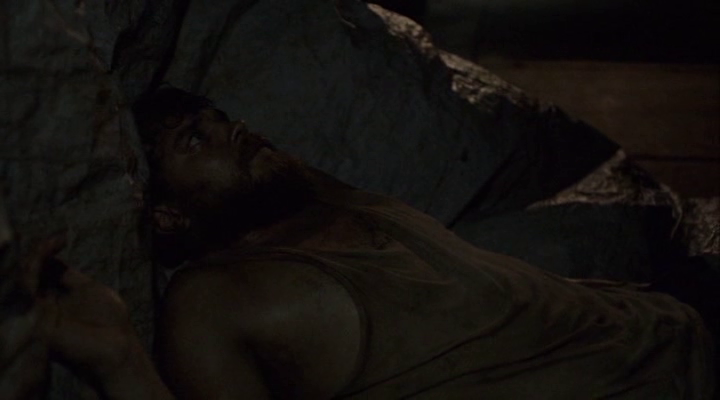
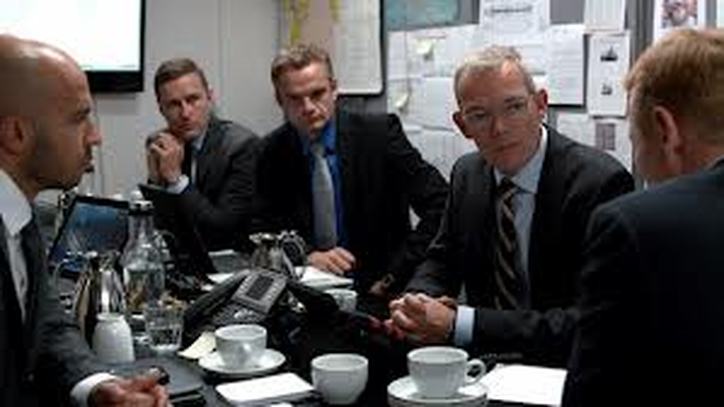
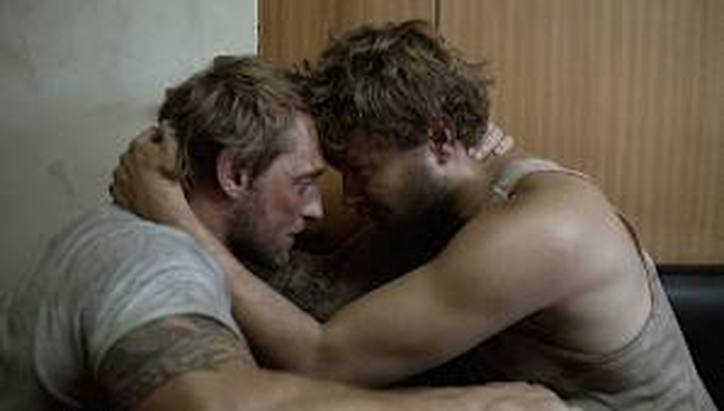
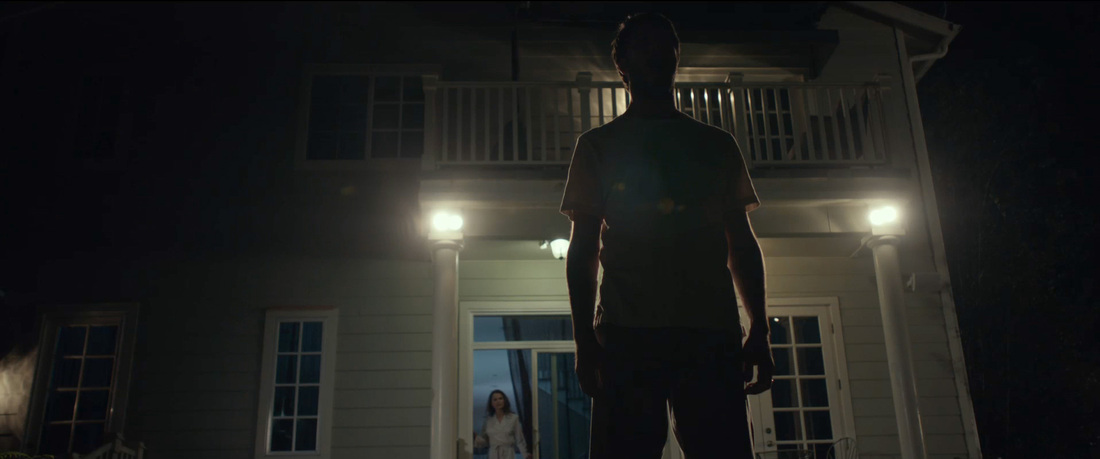
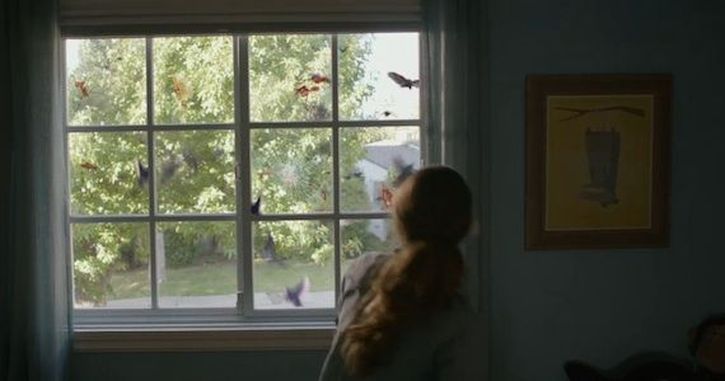
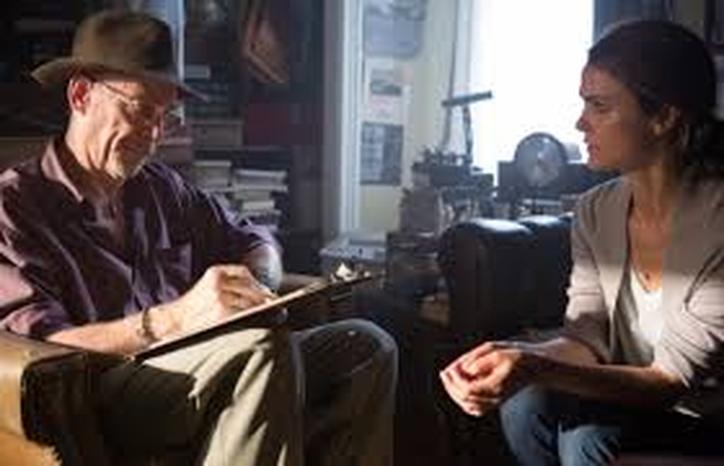
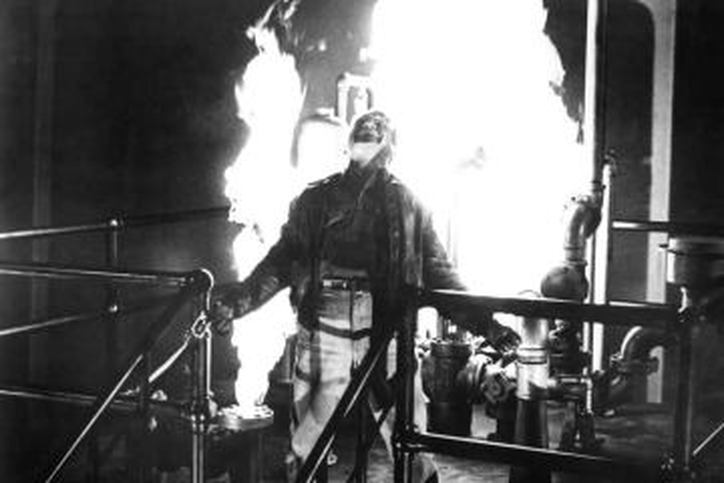
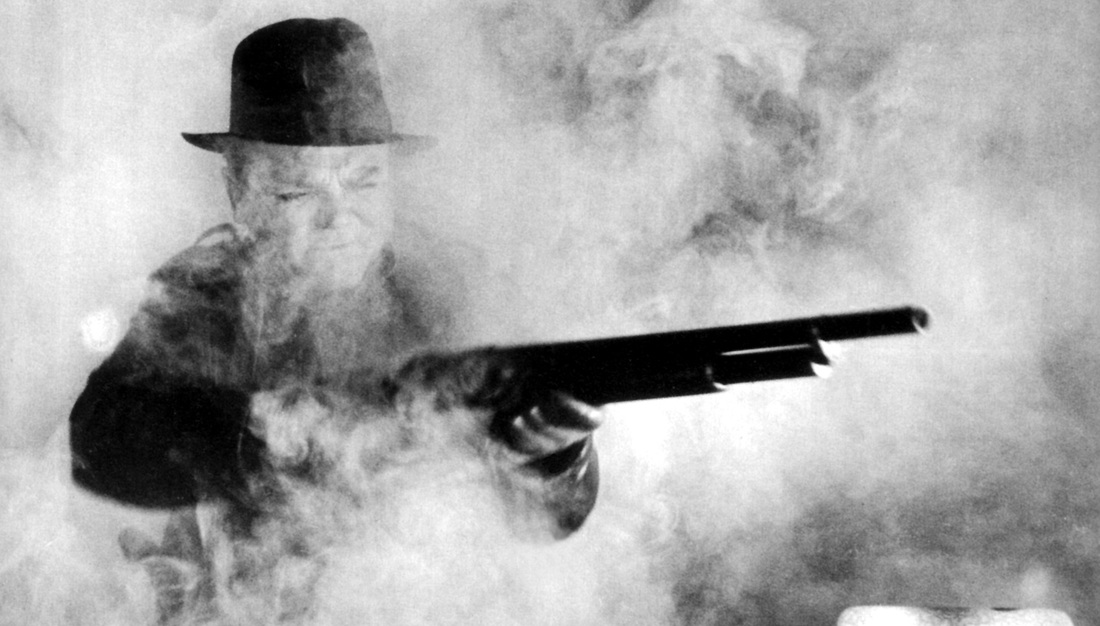
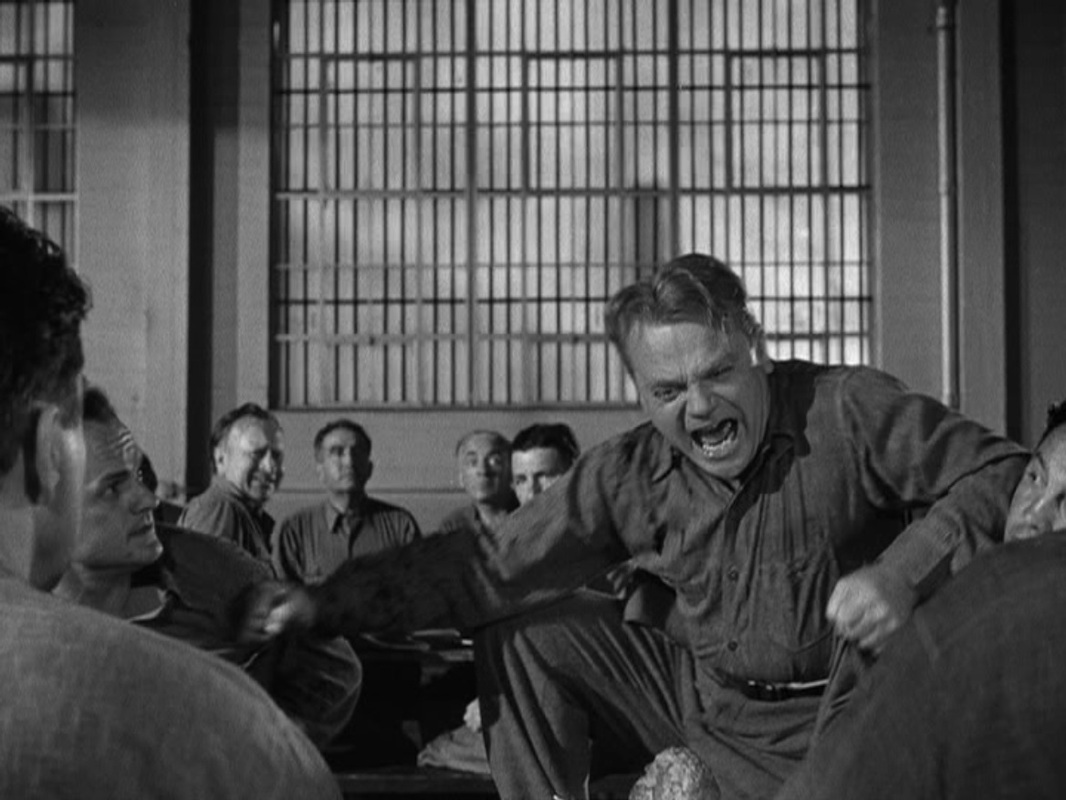
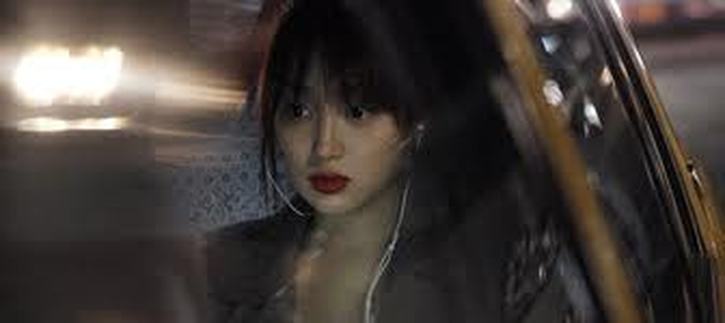
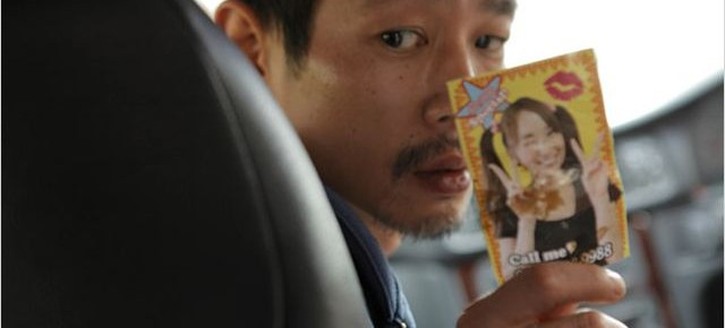
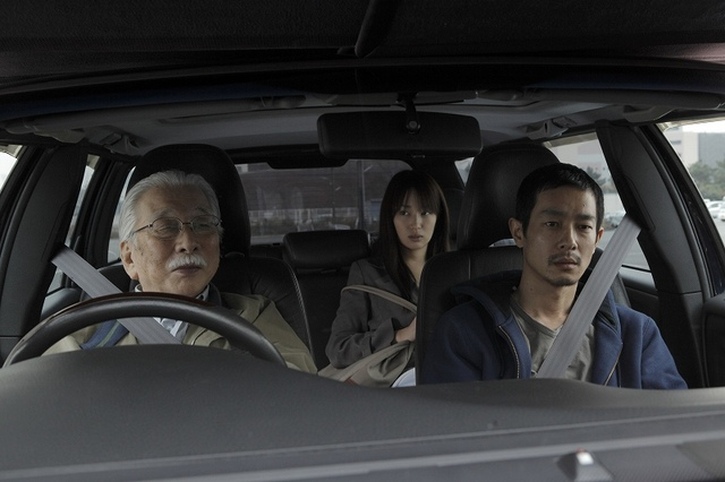
 RSS Feed
RSS Feed
